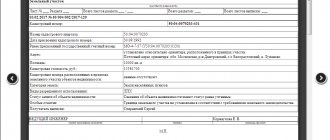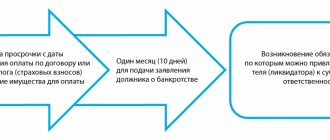So, you have decided to rent out your apartment. You want to avoid disagreements with neighbors, problems with utility services and build relationships with your employer as transparently as possible.
Let’s say right away that this article is dedicated specifically to renting out an apartment . If you are interested in renting out a room or a separate house, we suggest you read the relevant articles.
apartment rental agreements for all occasions with comments from the Portal’s lawyers and templates for filling out. Sample apartment rental agreements (free)
What types of apartments are there?
When considering the issue of renting an apartment, we consider it necessary to divide the apartments into
- privatized and
- non-privatized (municipal).
Features of renting a privatized apartment
Here we will talk about renting out an apartment that is your property.
The right of a citizen to dispose of his property is enshrined in legislation (clause 2 of article 35 of the Constitution of the Russian Federation, clause 2 of article 209 of the Civil Code of the Russian Federation). Therefore, only you can decide to whom, on what terms and for what fee to rent out your own apartment.
This also applies to all other owners. Therefore, we draw your attention to the fact that if you are not the sole owner of the apartment, then the consent of the other owners of the apartment will be required to conclude the agreement. In this case, we can offer you the following options:
- Execute a power of attorney for one of the owners stating that the others trust him to conclude a rental agreement, in which case one of the owners will act as the lessor under the agreement;
- In the contract, indicate all owners as lessors.
No other approval is required except with the remaining owners.
Features of renting a municipal apartment
A non-privatized (municipal) apartment is not your property. But in accordance with paragraphs. 2 clause 1 art. sublet your residential premises . However, in accordance with clause 1 of Article 685 of the Civil Code of the Russian Federation, residential premises can be rented out under a sublease agreement only with the consent of the landlord , so you will still have to go through an additional stage of approval.
The lessor of a non-privatized apartment may be different: a prefecture, a municipality or another body. You can find the answer to the question of who your employer is in the rental agreement , on the basis of which you yourself live in the apartment.
The landlord should submit a written request for permission to enter into sublease agreements. This application must also contain the consent of all members of your family living with you.
If a positive response is received (and such a response must also be provided in writing), a sublease agreement can be concluded.
Privatized room in a communal apartment
The privatized room is your property. The right to dispose of one’s property is enshrined in legislation (clause 2 of article 35 of the Constitution of the Russian Federation, clause 2 of article 209 of the Civil Code of the Russian Federation). It would seem that there is no need to coordinate anything with anyone here. But that's not true.
In a communal apartment there are also places that do not belong only to you: a corridor, a kitchen, a bathroom. They are the common property of all residents. In accordance with Art. 246 of the Civil Code of the Russian Federation, the disposal of property in shared ownership is carried out by agreement of all its participants. Therefore, before concluding a rental agreement, you should still obtain the consent of your neighbors, and in writing.
Regardless of whether the room is privatized or not, the tenant will interact with your neighbors in one way or another.
We strongly recommend that you tell your employer about the specifics of your relationship with your neighbors, and reflect the most important points in the contract.
This way you can avoid conflicts with neighbors both for the employer and for yourself.
Notification to the curious
Relationships with neighbors
From a legal point of view, what you do with the provided or, especially, your own apartment does not concern your neighbors. Of course, if your tenants do not cause inconvenience to their neighbors by violating their legal rights. including everything related to liability for violation of public order .
If the tenants are decent, don’t litter and don’t disturb anyone’s peace, then you don’t have to give any explanations about who currently lives in your apartment, what they do, etc. Of course, it all depends on your relationship with your neighbors. You can also ask them to first “keep an eye” on the apartment: are there any noisy parties being held there, etc.
In no case do we advocate spying on residents, recording their every move; that would be unethical. If you don’t trust the employer that much, it’s better to refuse the deal altogether and look for a person who is more reliable, from your point of view.
HOAs and cooperatives
Who else might be interested in your rental business? Currently, both apartment owners and municipal housing tenants interact quite closely with homeowners' associations and cooperatives.
Usually, the relationship between an adequate resident and the responsible representative of the HOA/cooperative develops normally. But as with neighbors, you are not required to provide any information about your employers .
The only exception: if the cost of any utilities is calculated based on the number of people living in the apartment, you must indicate the number of your tenants. But you have no obligation to provide their information.
In addition, let’s not forget about the Federal Law of the Russian Federation of July 27, 2006 No. 152-FZ “On Personal Data,” from which we can conclude that you do not have the right to provide anyone with information about your employers.
If you maintain a trusting relationship with your HOA/cooperative, we can advise you to notify them that you are renting an apartment, leave a contact phone number and ask them to contact you immediately in case of any conflict situations.
As for all the rooms
Notification to the curious: relationships with neighbors
Above we described what and in what cases it is necessary to obtain the consent of neighbors. Please note that you are not required to provide them with information directly about the rental conditions themselves.
Who lives in your room and for what fee is entirely your business. This applies to both neighbors in a communal apartment and neighbors in the hallway.
If you have a trusting relationship with your neighbors, you can ask them to “keep an eye” on your room and inform you in case of any problems or conflicts. But all this is within reason, without interference in the private life of the employer and espionage.
HOAs and cooperatives
Who else might be interested in your rental business? Currently, both owners and tenants of municipal housing interact quite closely with homeowners' associations and cooperatives.
Usually, the relationship between an adequate resident and the responsible representative of the HOA/cooperative develops normally. But as with neighbors, you are not required to provide any information about your employers.
The only exception: if the cost of any utilities is calculated based on the number of people living in the apartment/room, you must indicate the number of your tenants. But you have no obligation to provide their information.
In addition, let’s not forget about the Federal Law of the Russian Federation of July 27, 2006 No. 152-FZ “On Personal Data,” from which we can conclude that you do not have the right to provide anyone with the data of your employers.
If you maintain a trusting relationship with your HOA/cooperative, we can advise you to notify them that you are renting a room, leave a contact phone number and ask them to contact you immediately in case of any conflict situations.
Property in a rented room
Most likely, the room you want to rent out contains your property: furniture, plumbing, chandeliers, and so on. We are confident that you are interested in preserving this property while the tenants are in the room.
To reduce the risk of damage to this property and obtain guarantees of compensation if damage does occur, you can issue acceptance certificate . Such an act will be an annex to the rental agreement.
The deed should list all property, if possible so that it can be easily identified: what kind of TV, wardrobe, and so on. If the property already has some damage, then this fact is also reflected in the act - but this, most likely, will already be a requirement of your employer.
Public utilities
We have already drawn your attention to the fact that if the cost of any utility services depends on the number of people living in the apartment/room, then it is necessary to notify the organization that calculates these utility bills. This could be either a homeowners association/cooperative, or the company itself providing the services.
As for public services in general, in accordance with Art. 678 of the Civil Code of the Russian Federation, the employer is obliged to pay for them. In the contract, this obligation can be assigned to you as well - it all depends on the agreements reached. However, we draw your attention to the fact that even if the obligation to pay for utilities is assigned to the tenant, claims for non-payment will be brought against you, since under the agreement with the company providing the services, you continue to bear the obligations.
Scout the situation
Most people take good care of their property. And the desire to keep everything under control in this case is absolutely normal.
Therefore, we advise you to immediately warn the employer that you will come periodically to inspect the room and your things in it, and stipulate in the contract the frequency of such “checks” and the time of your visits.
These formalities are necessary due to the fact that the tenant officially living in the room acquires the right to inviolability of the home . This right is guaranteed to all of us by the Constitution and the Housing Code. Therefore, if you simply come without asking, especially in the absence of the employer, this most likely “will not make him happy.”
We rent out an apartment “without giblets”
It is unlikely that you will rent out an apartment that has absolutely no furniture, plumbing, lighting or other property. As a rule, any apartment has at least a minimum set of items necessary for everyday life.
How to secure property left “to be torn to pieces” by the employer? In an article about the risks of illegal rentals, we have already touched on this issue. But if you are reading this article, we hope that you have finally decided to formalize the rental of an apartment properly and conclude an agreement. Therefore, let’s say a few more words about the property in the rental apartment.
As an annex to the lease agreement, you can add an act of acceptance and transfer of all property located in it. In this document, all property should be listed, if possible so that it can be easily identified: which TV, cabinet, etc. If the property already has some damage, then this fact is also reflected in the act - but this, most likely, will already be a requirement of your employer.
apartment rental agreements for all occasions with comments from the Portal’s lawyers and templates for filling out. Sample apartment rental agreements (free)
Room in a privatized apartment
And finally, let's move on to the simplest (in terms of coordination) case. If you are the sole owner of the apartment in which you are going to rent out a room, then absolutely no one’s consent will be required to enter into a rental agreement.
But if there are other owners along with you, then their consent will be necessary. Such consent can be obtained in the following ways:
- Execute a power of attorney for one of the owners stating that the others trust him to conclude a rental agreement, in which case one of the owners will act as the lessor under the agreement;
- In the contract, indicate all owners as lessors.
We talked about neighbors in communal apartments. Here we remind you that if you rent a room in a private apartment, you yourself will be neighbors with tenants. Therefore, we advise you to determine in advance the procedure for using the premises that you do not rent directly to the tenant, but which he will also use: hallway, corridor, bathroom, etc.
If you responsibly approach the coordination of these points, this will allow you to avoid many disagreements during the tenant’s stay in your apartment.
Utilities in a rented apartment
We have already drawn your attention to the fact that if the cost of any utility services depends on the number of people living in the apartment, then it is necessary to notify the organization that calculates these utility bills. This could be either a homeowners association/cooperative, or the company itself providing the services.
As for public services in general, in accordance with Art. 678 of the Civil Code of the Russian Federation, the employer (that is, your tenant) is obliged to pay for them . In the contract, this obligation can be assigned to you as well - it all depends on the agreements reached. However, we draw your attention to the fact that even if the obligation to pay for utilities is assigned to the tenant, claims due to non-payment will be brought against you, because Under the agreement with the company providing the services, you continue to bear obligations .
Registration instructions. Method No. 1 - through the passport office or MFC
- We go to the passport office or MFC, where we fill out the registration application.
If you are an employer under a social tenancy agreement. Provide your passport with the contract and fill out an application for registration at the place of residence (or a sample). If you haven’t checked out at your previous address, then also an application for deregistration - and a sample. Nothing more is required.Unless you are the tenant/main tenant. Fill out the registration application differently - or a sample. It is also signed by the tenant/main tenant. If you haven’t checked out from your previous address, submit an additional application for deregistration (and a sample). It is enough to attach your passport to the application. No departure slip, no certificate from the military registration and enlistment office, etc. is required.
All adult residents registered in the apartment will be required to: 1) Passports and copies. 2) Written consent to your registration in free form - and a completed sample. Each to their own. The consent must indicate the degree of relationship between you, because a citizen can register only as a family member - Art. 69 Housing Code of the Russian Federation. 3) If you are considered a close relative of one of the residents, you need to prove the degree of relationship between you. When registering a spouse, we provide a marriage certificate. An adult son or daughter - his birth certificate. Etc. 4) The basis document for your registration - a social tenancy agreement, a warrant or an extract from a personal account. Everywhere they require different documents - I wrote about this in the link above.
If one of the residents cannot personally submit consent (for example, he is in another city), he should obtain consent from a notary + a power of attorney for someone, then send the original documents by mail. You do not need to send your passport. The power of attorney must be for the right to sign and represent interests in the Ministry of Internal Affairs.
- The application will be sent to the district Ministry of Internal Affairs.
The employee will take your passport, applications, consents of residents, copies of documents for the apartment and relationship. He will send everything to the migration department of the district Ministry of Internal Affairs - from the MFC in electronic form, from the passport office in paper form.An employee of the Ministry of Internal Affairs will conduct a check and if everything is correct, then: 1) Enter data about your new registration address into the database (Mir system). 2) Send your passport back. 3) If you applied to the passport office, the stamp in your passport about the new registration will be put in the Ministry of Internal Affairs - clause 118 of the Order of the Ministry of Internal Affairs N 984. If at the MFC, the stamp will be put by an employee of the MFC - clause 121 of the Order of the Ministry of Internal Affairs N 984. The terms of the procedure are described above in the pros and cons disadvantages of organizations.
- On the appointed day, pick up your passport with a new registration stamp. I mentioned the timing above. Other residents do not have to come.
The instructions are partially written based on the article at the link.
Controlling the situation
As we said, informally you can ask neighbors or an HOA/co-op representative to keep an eye on the new tenants and let you know if there are problems. But it’s always safer to take care of your property yourself. Note that the tenant officially residing in the apartment acquires the right to the inviolability of the home. This right is guaranteed to all of us by the Constitution and the Housing Code. Therefore, if you simply come without asking, especially in the absence of the employer, this most likely “will not make him happy.”
What to do, how to visit your apartment without violating anyone’s interests?
You can agree in advance with the employer on the time and frequency of such checks, and record this in the contract. For example, monthly while receiving rent.
drawing up an apartment rental agreement by the portal’s lawyers, taking into account all your wishes
Results and conclusions
If you are planning to rent out an apartment, then you should pay attention to the following points:
- Is your apartment privatized or not?
- What is your relationship with your neighbors?
- Who manages the common property of the house - HOA/cooperative?
- How are utility bills calculated?
- What property is in the apartment?
The answers to these questions will need to form the basis of some clauses in your contract. But when drawing up a contract, you should not limit yourself only to these provisions. The contract should indicate all the conditions that you agreed with the employer. And the more detailed the rights and obligations of both parties are described, the more transparent the relationship will be.
Still have questions? – consult with a Portal lawyer
Are you renting an apartment? We will help!
On our Portal you can:
- Absolutely free
- Buy apartment rental agreements for all occasions and additional. agreements with comments from our lawyers in the agreements store (from 100 rubles)
- Is your case “more complex” and the standard contract template does not suit you? – our lawyer will draw up a lease agreement for you, tailored to all your needs.
- We will also advise you, help you apply for a tax deduction, decide on the form of taxation and much more. Our services for landlords and tenants








